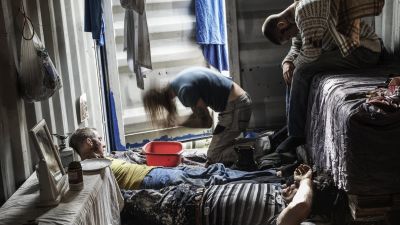How can you help victims of modern slavery in Wales?

There's been a large increase in the number of modern slavery victims referred from Wales to charities over the last year.
A new report has revealed a 43% increase in the number if slavery victims referred to the Salvation Army's specialist support team with almost half of all victims coming from Cardiff.
Of the 106 victims referred from Wales, 48 were from Cardiff.
This increase comes despite a huge drop in referrals to The Salvation Army during the first three months of lockdown.
Is slavery a problem here in Wales?
It is estimated there are more people living in slavery today than during the transatlantic slave trade.
40.3 million people worldwide are thought to be in forced labour, sexual exploitation, domestic servitude and forced marriage.
Forced labour is the most common type of exploitation experienced in Wales. This includes working in industries such as restaurants, car washes and factories.
How can you help identify victims of slavery?
The Salvation Army said there are signs people can look out for but their message to the public is not to put themselves in harms way.
Head of Operations Emilie Martin said: "We would always ask the public to never intervene and put themselves at risk. However, if they start noticing things that don't seem right."
She continued: "If you start to see someone who appears malnourished, or their hygiene is neglected, or they appear very hungry, or they appear very withdrawn, and refuse to engage in eye contact or conversation - those are all signs that there could be someone actually overpowering them and controlling them."
If you have concerns it is recommended that you raise it with 101 or call the Salvation Army's 24 hour referral line.
Some of the signs to look out for include:
Limited family contact
Physical abuse/ appearing malnourished
Distrust of authority
Having no friends
Acting as if under another's control
Disorientation
Avoiding eye contact
Unable to speak any English
The Salvation Army has launched a #WeAreNotForSale awareness campaign using specially designed face masks which features a barcode and symbolises how slavery treats people as objects to be bought and sold.